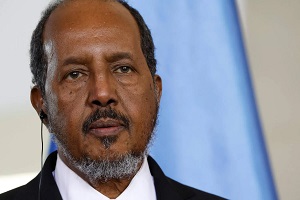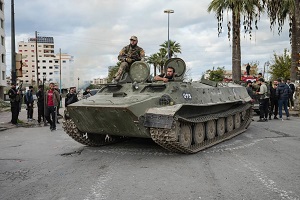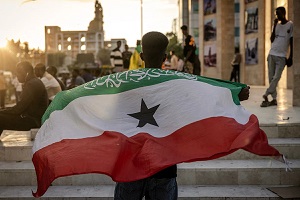Syrian Refugees and the Question of Returning - By Akram Bunni, Asharq Al-Awsat
The international conference on Syrian refugees that was recently held in Damascus did not add anything new. Its decisions seem to be nothing more than ink on paper, not only because it belittled the problem’s humanitarian and moral considerations and demonstrated that its political objective is to whitewash the regime, or because international participation was sparse- major Arab and Western countries still prioritize compliance with the international conditions for the safe return of refugees along with a political transition that is in line with the Geneva Convention and UN Security Council Resolution 2254. It’s because the majority of the refugees themselves are frightened of returning to a homeland where nothing awaits them but more burdens, deprivation and various dangers that threaten their lives and their children’s safety.
How could a refugee return when he sees, with his own eyes, that still, after all the atrocities it had perpetrated, the regime takes people for fools and has made an art out of duping to evade accountability for the displacement of the Syrian people? It claims the hardship they are facing, which it is primarily responsible for, was elicited to interfere with the country and divide it; that is the result of the economic blockade and Islamic terrorism, not its arbitrary and unruly violence and its extremely destructive and belligerent campaign to maintain its grip on power and its privileges. It does so to avoid responsibility for the destruction and displacement and the declining economy and living standards, claiming that destruction, corruption, and extortion are not behind this crisis. It is the result of Lebanese banks seizure of Syrians’ deposits, which it became apparent do not add up to more than a few billion dollars, some of which had been withdrawn during the Lebanese crisis’ early stages.
What incentive could compel refugees to return in light of the prevalence of a firm conviction that nothing positive is on the horizon and that there is no hope for salvation in the near future, or even for improved security conditions and the provision of the basic needs? The issues of political persecution and arbitrary arrest have yet to be resolved, so how could the refugees who are sure that the future will be even darker, the majority, return? How could they comeback while the tyrannical structure is still place, one that they know will not manage to govern, after all the crimes it had perpetrated, without escalating its violence, terrorism and assault on human rights?
Without a doubt, the attempts Russia has made since it launched the initiative in 2018 have contributed to the return of a few hundred of the 6.6 million refugees, most of them from Lebanese camps, where their suffering is exacerbating, they are subjected to an array of forms of harm, humiliation and accusations, and they live in harsh conditions, with their mobility and ability to work extremely constrained. Nevertheless, they will not be compelled to return so long as their memories are brimming with dozens of examples of families who had returned to the country only for the men to disappear into intelligence agency basements and from them to find out that there is no hope for retrieving the homes and lands that had been stolen by the regime’s thugs, especially in the areas that were besieged for long periods. Most disturbing is when these properties are seized by sectarian groups intending to occupy neighborhoods and towns as part of a project for demographic change, turning them into homogeneous security outposts where this sectarian mind-set pervades.
Despite Syrian refugees’ suffering in Turkey, one can feel that most of them see staying there as the least painful option than that awaiting them in their country. It is preferred, despite the declining living conditions and employment opportunities, the refugees’ awareness of the exploitation of their tragedy, which Turkey manipulates to draw international and European financial aid and realize its ambition of establishing a safe area along its borders.
They would rather stay despite Tukey sucking the life out of their bodies, constraining the capitalists and skilled workers among them, and even plunging their youths into battles that do not concern them. This is especially true after authoritarian delusions of victory make everything permissible to those who bear arms, turning them into absolute rulers who can, with impunity, decide the fate of people’s lives and property. This is evident from the abundance of stories about the severity of the fighters’ assaults and the variety of their transgressions, whether allied with the regime or the opposition... Stories about fighters subjecting innocent citizens- for trivial reasons- to violations of their dignity, extortion, assault and murder with total impunity... A student who was left to die at the gates of a university after being severely beaten by those responsible for his life and security ... A girl who was killed just because she rejected a gunman who tried to seduce her at a security checkpoint... A father who was forced to kill his three young daughters so they would not be violated or humiliated… A family that was still consumed by despair at its inability to secure the ransom demanded in exchange for its kidnapped son…
Finally, how can refugees return, having fled hardship, unemployment, and the inability to access the most basic necessities, such as food, clothing, and medicine? How can they return after suffering from water scarcity and electricity cuts, after being abused and humiliated in pursuit of a little fuel or gas?! Isn’t it natural that they recall the images of their brothers back home before returning? Isn’t it reasonable from them to remember that their compatriots back home live in extreme poverty or even close to going hungry, or contemplate the state of their county’s education and health services; to think of what would await them after more than half of the schools and health facilities had been partially or totally destroyed and the best doctors and the best-educated had emigrated?! Should they return to join those waiting in long queues to access their basic needs or detained in the iron cages erected on the grounds of bakeries’ waiting areas under the pretext of organizing the queues formed by those seeking a morsel of bread? Should they return to deprive their families and loved ones of the money they can afford to send them from abroad, knowing that these families and loved ones cannot survive without it?!
One does not need to speak to Syrian refugees to uncover the depth of their yearning for their homeland and to return to their homes. One can feel it in the enthusiasm induced by good news about their country, in eyes that tear up in agony over the aggravation of their family and loved ones’ suffering. It can be seen in their spirits, brimming with pain and perhaps hopelessness, especially after salvation became more complex following the authoritarian security regime’s so-called victory; after its sectarian grip on the levers of the state and its control over people’s lives strengthened; and the country became hostage to the interests of external factions; after neither Syria’s interests nor the rights of its sons and their future are taken into account any longer.
Latest News
-
 Trump says 'hell to pay' if Hamas fails to disarm in short period
Trump says 'hell to pay' if Hamas fails to disarm in short period
-
 Somali President to Visit Türkiye After Israeli Recognition of Somaliland
Somali President to Visit Türkiye After Israeli Recognition of Somaliland
-
 Syrian Army Enters Latakia, Tartus after Attacks by Regime Remnants
Syrian Army Enters Latakia, Tartus after Attacks by Regime Remnants
-
 Jordan, Arab, Islamic countries reject Israel’s recognition of Somaliland
Jordan, Arab, Islamic countries reject Israel’s recognition of Somaliland
-
 Trump Says Had 'Productive' Call with Putin Ahead of Zelensky Meeting
Trump Says Had 'Productive' Call with Putin Ahead of Zelensky Meeting